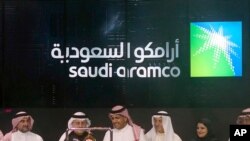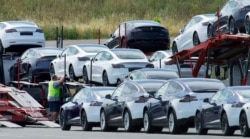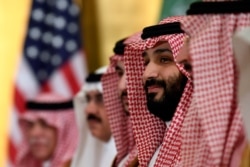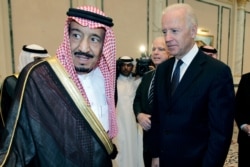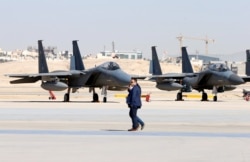Analysts say the world’s dependence on gasoline isn’t likely to return to pre-pandemic levels, as moves step up to increase fuel efficiency and a global shift accelerates to use alternative green energy sources, including electric vehicles. Despite the Biden administration’s talk of recalibrating its relationship with Saudi Arabia over human rights concerns, analysts say Washington’s ties to the oil giant remain vital.
The International Energy Agency, a Paris-based intergovernmental watchdog, says that while oil demand may continue to rise as developing countries with growing populations use more of it, such demand will be offset globally by an accelerating use of greener energy sources.
Swiss energy analyst Cornelia Meyer says oil demand overall fell by close to 10 percent in 2020 due to the coronavirus pandemic. The world’s largest oil company, Saudi Aramco, saw its profits nearly halved last year to 49 billion dollars, as the pandemic roiled global energy markets. But oil prices are edging up again as movement restrictions ease, commerce increases, and more people get vaccinated against COVID-19.
President Biden, meanwhile, has waived punishment for Saudi Arabia’s Crown Prince Mohammed bin Salman in the 2018 killing of US-based Saudi journalist Jamal Khashoggi, saying this would have been diplomatically unprecedented for the United States. This, despite the unease it causes to U.S. strategic interests and values, says Princeton University Gulf scholar, Bernard Haykel.
“Saudi Arabia is an extremely important country for U.S. strategic interests, and it’s not just about oil. It’s also about the stability of the region," he said. "It has to do with global financial markets and their stability. The reserve currency — the dollar — the principal currency in which oil is traded. So, it’s a very complicated relationship. The Biden Administration cannot push a purely human rights agenda when it comes to Saudi Arabia.”
The U.S. also runs five military bases in Saudi Arabia and is eyeing expanding its operations there amid heightened tensions with Iran, which Yasmine Farouk, a visiting fellow at the Carnegie Endowment for International Peace, says is vital for Washington.
“Saudi Arabia is crucial to the priority axis in the Middle East to the U.S. military. Anyone in the military will tell you this: land, sea, air. It’s one of the world’s biggest economies. They have a global outreach because of their Islamic power and investments. They have the biggest media empire in the Middle East. They can reach the rest of the Islamic world and can shape public opinions,” she said.
Farouk says that Saudi Arabia is also the world’s biggest arms buyer.
Steven Cook of the Council on Foreign Relations told Britain’s The Guardian newspaper that if Washington going to get the Saudis out of Yemen, the US is going to need the Saudis’ cooperation, and he said Washington will need to work with Riyadh on the Iran nuclear deal. In Cook’s words, Saudi Arabia is “a big important country that’s just super hard to avoid.”




